Shutdowns are dumb and voters hate them | Weekly roundup for October 19, 2025
If you’re going to shut down the government, do it because you think it's worth it. Also this week: The VRA, gerrymandering and the midterms; party favorability ratings update; + more!
Dear readers,
It looks like we’re headed for the second-longest government shutdown on record. At publication, the current federal funding lapse has gone on for 19 days. That’s longer than the infamous 2013 shutdown (16 days) and is rivaling the 21-day shutdown in 1995-96, which we are very likely to eclipse. Only the 2018-2019 shutdown during Trump’s first term is longer (35 days).
Shutdowns are, of course, really stupid. They cost the government billions and cause undue stress to the families of government workers. People lose access to government services, and the economy takes a hit too. This year, the White House has also used the shutdown as an excuse to permanently fire thousands of federal workers and announce likely illegal unilateral executive cancellations of funds for infrastructure and other projects in blue states.
So this week, instead of talking about the shutdown blame game (Republicans are still getting the lion’s share, though the gap between the parties is narrowing), I want to highlight the polls showing everyone hates shutdowns. They’re dumb, and the public gets hurt.
This Substack is all about using objective data to learn about politics and the world. One of the big challenges for news consumers today is figuring out what information is real and factual, versus what may be driven by ideology and corporate agendas. That’s why I’m happy to partner with Ground News, a website and app I use every day that presents news articles from over 50,000 sources and shows you a measure of each outlet’s factuality, funding, and political bias.
For example, I was catching up on the shutdown news today, and Ground News showed me the top story about the ongoing government shutdown is written by a right-wing website with “mixed factuality.” This suggests I shouldn’t take their headline “Dems Block Government Reopening” very seriously, and look for a more factual source (such as the article from Semafor listed second):
I think this feature will be useful to my audience — informed readers trying to find the facts in the news, the signal in the noise. Ground News is a smart aggregator to help you deal with the challenges of our modern information ecosystem. Today, they’re offering readers of Strength In Numbers 40% off their “Vantage plan,” which gives you a personalized feed as well as data on factuality, partisan bias, and funding information for every news outlet.
This section is sponsored content.
Shutdowns are dumb and voters hate them
Let’s take a look at two shutdown-related poll questions released this week. The first is from a The Economist/YouGov poll published on Tuesday.
If you take this poll literally (like many lawmakers in Washington are), then Democrats are “winning” the shutdown. A Democratic strategist might say the shutdown standoff is worth it since most voters aren’t blaming Democrats for the lapse in funding.
There are two problems with thinking like this. One is that political analysis depends on how pollsters ask questions to the public. Take, for example, this different question from a new Associated Press-NORC poll published this week.:
Looking at this graph, while “only” 54% of adults say the Democrats bear “quite a bit” or “a great deal” of responsibility for the shutdown (compared to 58% for Republicans), this is not a popular place to be. Fewer than one in five voters say Democrats deserve little or no blame.
The difference between these two polls highlights how question wording in polls drives results — and, in turn, our political reality. While it’s true that Republicans bear more blame than Democrats in the eyes of the voters, it’s not as if Democrats are doing something extremely popular here.
But — and this is my second gripe with the Democrats’ strategy right now — sometimes it’s worth standing up for things you believe in even if they’re unpopular. Party leadership evidently assigns a lot of leverage to the fact that voters so far don’t disproportionately blame them for keeping the government closed as a way to incentivize Republicans to extend Affordable Care Act subsidies. This is what Schumer was saying last week when he remarked that the shutdown situation “gets better for [the Democrats] every day.” But does this imply that he would cave if polls turned against them?
In my opinion, that would be (as we used to say at FiveThirtyEight) a Bad Use Of Polling. If you think shutting down the government is worth it to increase the probability that more people get health care benefits, then just let it be worth it without obsessing over the polls. In all likelihood, the shutdown itself will harm how voters view the parties, regardless of who is “more responsible.”
Take the 2013 shutdown as an example. A Pew Research Center poll found ratings for both President Barack Obama and leaders in Congress falling by similar amounts in the aftermath of government funding expiring. Economic anxiety and general anti-Washington sentiment rose, too. The long-term trend in public opinion is generally toward viewing Congress unfavorably and as incapable of solving America’s problems. 94% of adults in that AP-NORC poll published this week say they have no or little trust in Congress.
So the shutdown is either worth it or it isn’t. As it so happens, the news today (I’m writing this on Friday, Oct. 17) is that Republicans may be caving on the ACA subsidies anyway. But that doesn’t mean there won’t be consequences.
What you missed at Strength In Numbers
Subscribers to Strength In Numbers received three articles over the last seven days:
Last week’s data roundup, diving into the viral claim that voters think Trump is “doing what he promised” (in a good way):
A piece diving into some polling crosstabs about what policies voters see the parties as “focusing on”:
A discussion of our new polling averages for the Virginia and New Jersey governors’ races published at FiftyPlusOne:
Every day is a good day to become a paid supporter of Strength In Numbers. You get extra premium posts at least once a week (and, lately, more like 2-3x a week), an early look at any data products I’m developing, access to a private Discord server just for paid members, and more. Paying members also support all the work that goes on behind the scenes to put together the SIN/Verasight poll, my state and congressional district MRP models, and all the other analyses that power my journalism.
Even more numbers!
A collection of links from the last week:
Political scientists Anthony Fowler and Shu Fu find that primary elections do not increase political polarization, despite popular claims to this effect.
Nate Cohn does the math on the impact that SCOTUS invalidating Sec 2 of the VRA could have on Democrats’ odds of taking the House. If states are allowed to redistrict before next November, Democrats could need to win the popular vote by 6 points to win a majority of seats.
A survey from YouGov and Bankrate.com finds 63% of adults say their wages are not keeping up with inflation, a level they haven’t seen since 2020.
An Elon University poll in North Carolina found a 46% plurality of voters say Trump’s tariffs have hurt them personally, and 44% say they are less confident in their financial situation compared to a year ago. The president’s job approval in the state — which is key to Democrats winning back the Senate in 2026 — is just 39%.
The UVA Center for Politics/Sabato’s Crystal Ball moves Maine’s Senate race from Lean Republican to Tossup.
The Pew Research Center finds Republicans now support cancel culture:
A new Gallup poll finds a broad majority (63%) of adults favor increasing taxes on upper-income Americans to help pay down government debt.
And finally, this table from the AP-NORC poll this week also caught my eye. The Democratic Party’s favorability rating is so low today (when compared to the GOP’s) because Democrats are upset with the party, not because swing voters rate Democrats more negatively than Republicans. This poll shows that independent voters feel equally negatively toward both parties. Favorability of the GOP is slightly higher among Indies than the favorability of the Dems, but both score 53% unfavorable. That’s bad for Ds, but not in an asymmetric way with obvious political consequences, as has been the narrative on this number.
As a result, you really don’t want to take aggregate favorability ratings at face value in trying to translate them to, eg, a midterms forecast. Mary Radcliffe and I raised this a few months back, but the AP-NORC poll makes it concisely.
Please share any other links that caught your eye in the comments below.
Polling update
The Strength In Numbers polling averages have moved to a new webpage at fiftyplusone.news, a website purely for poll-tracking that I’ve set up with my friends.
Trump’s approval is -13.
The generic ballot is D+3.
The Democratic candidate is up 10 in the Virginia governor’s race.
The New Jersey governor election is D+6.
Some other charts on the data portal will remain there until we can replicate them on the new site:
Trump issue approval:
Trump compared to past presidents:
That’s it for your major political data stories this week.
Got more for next week? Email your links or add to the comments below!
Have a nice week,
Elliott



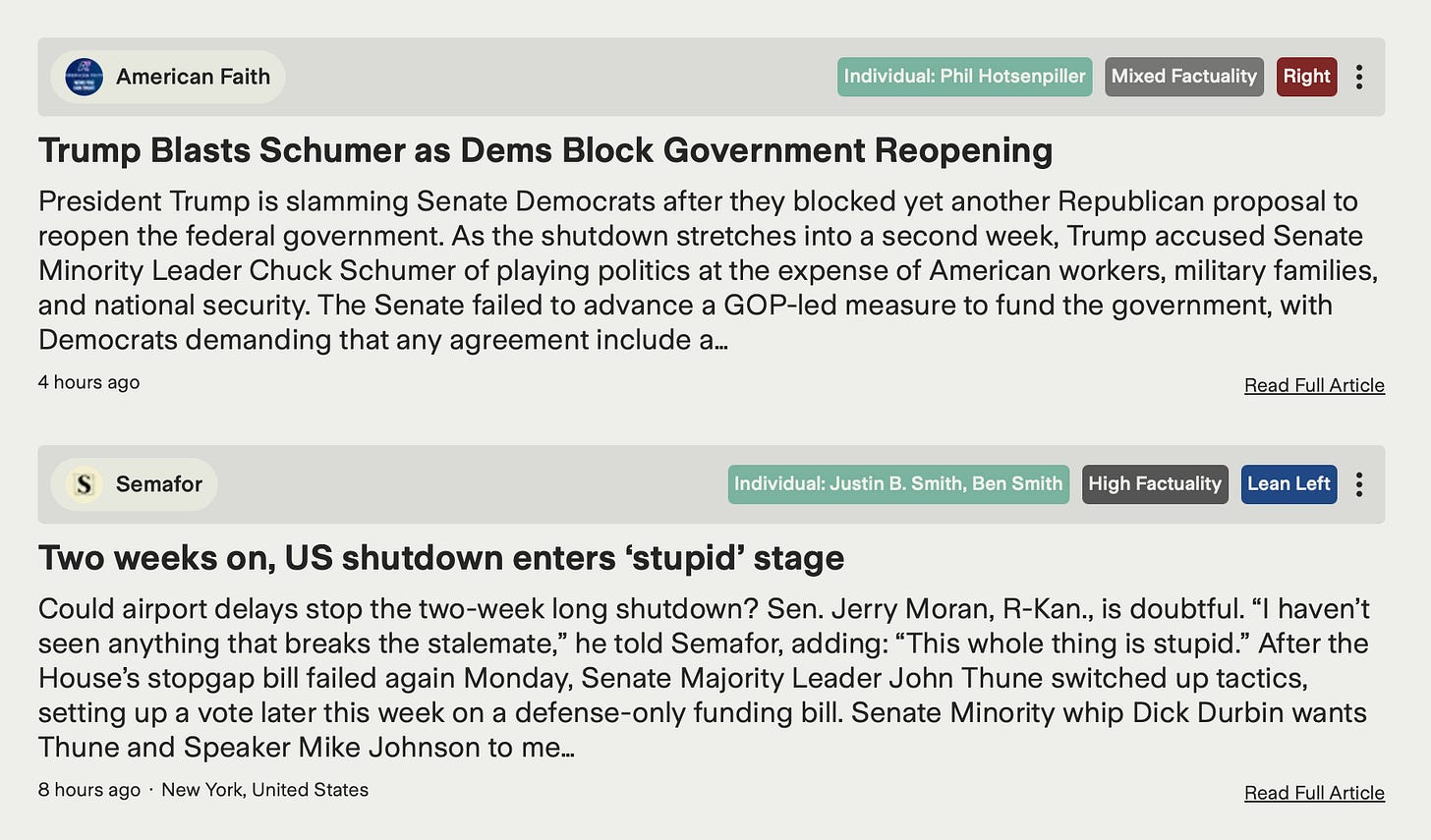
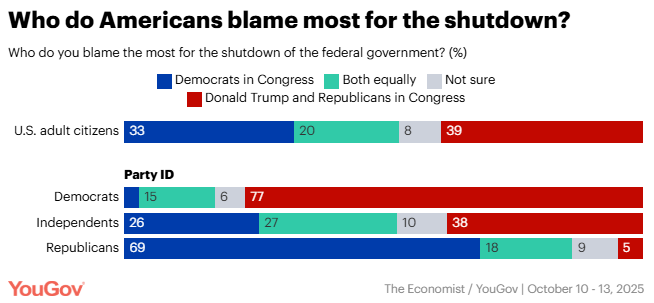
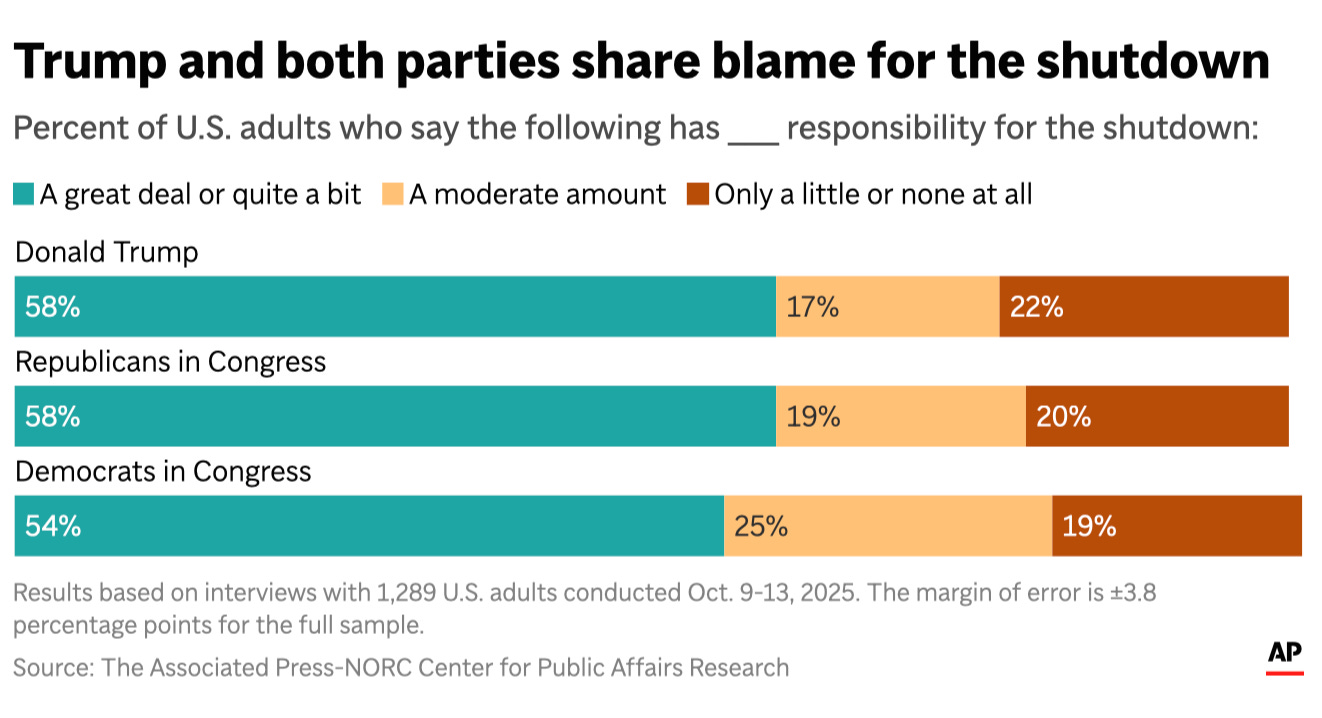
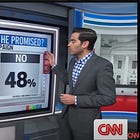
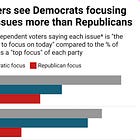
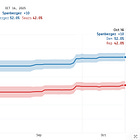
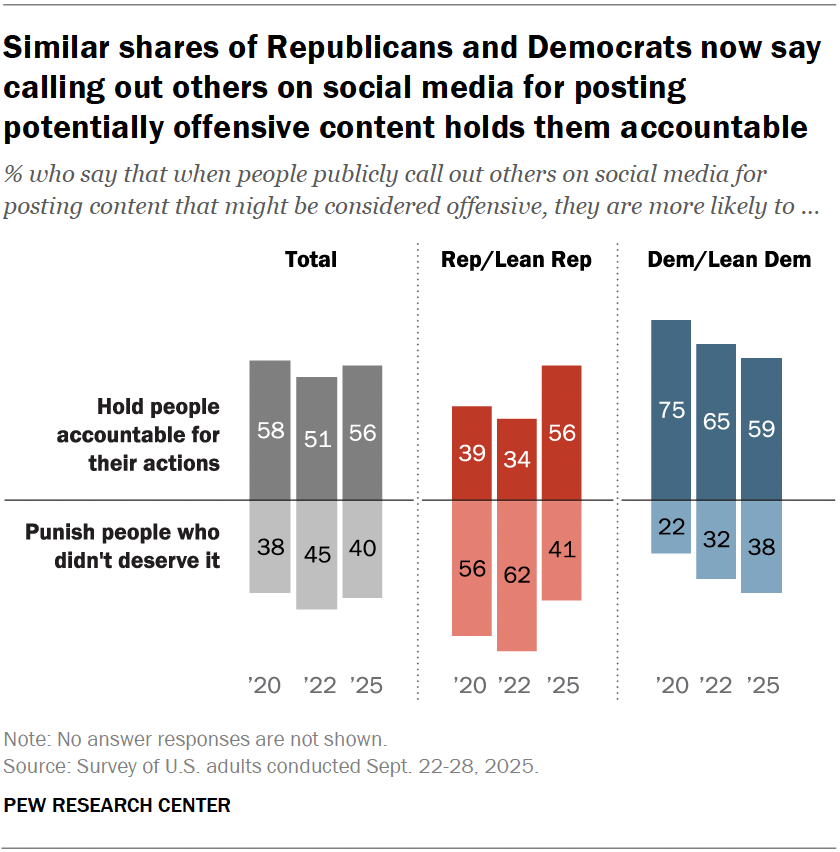
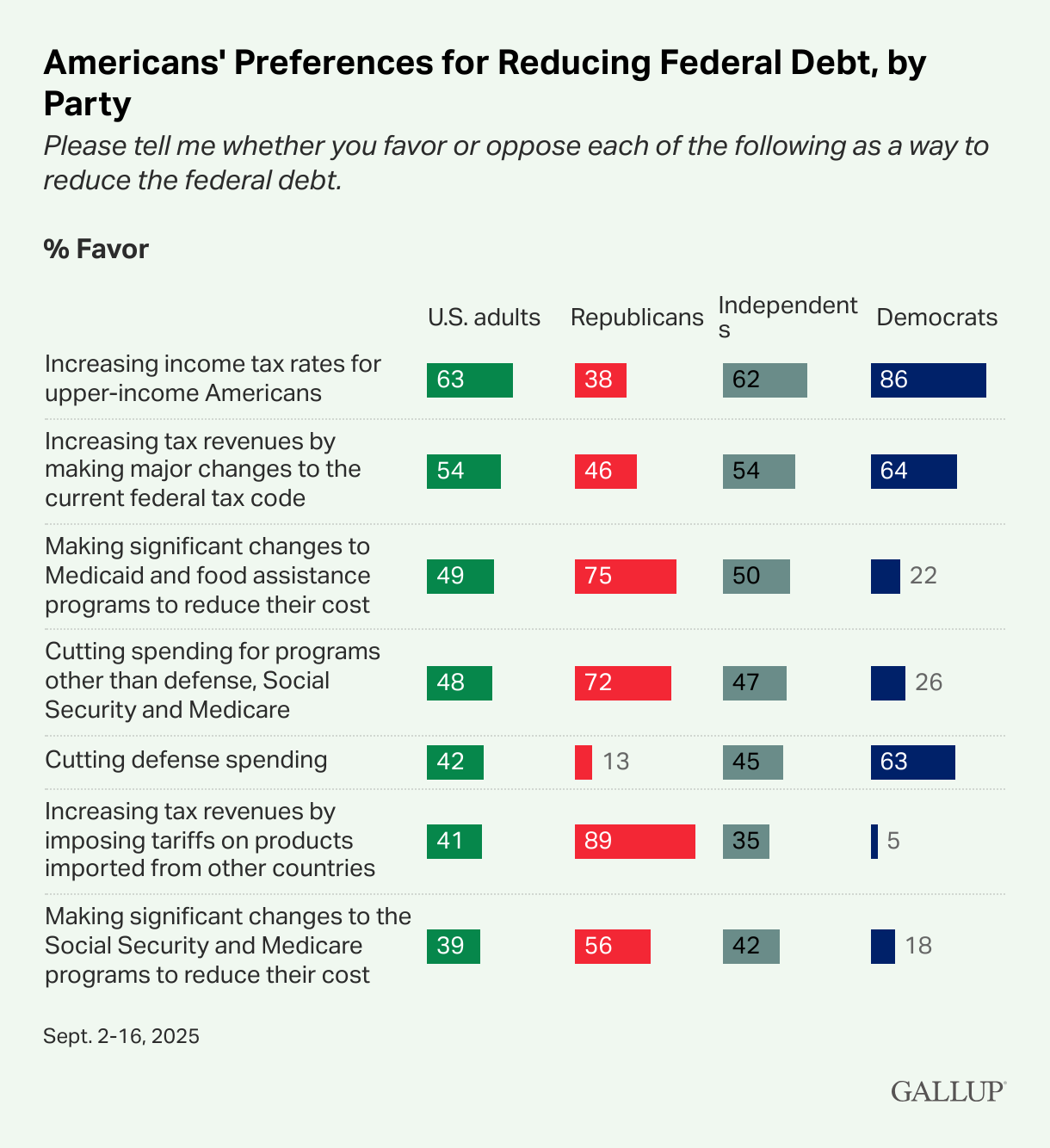
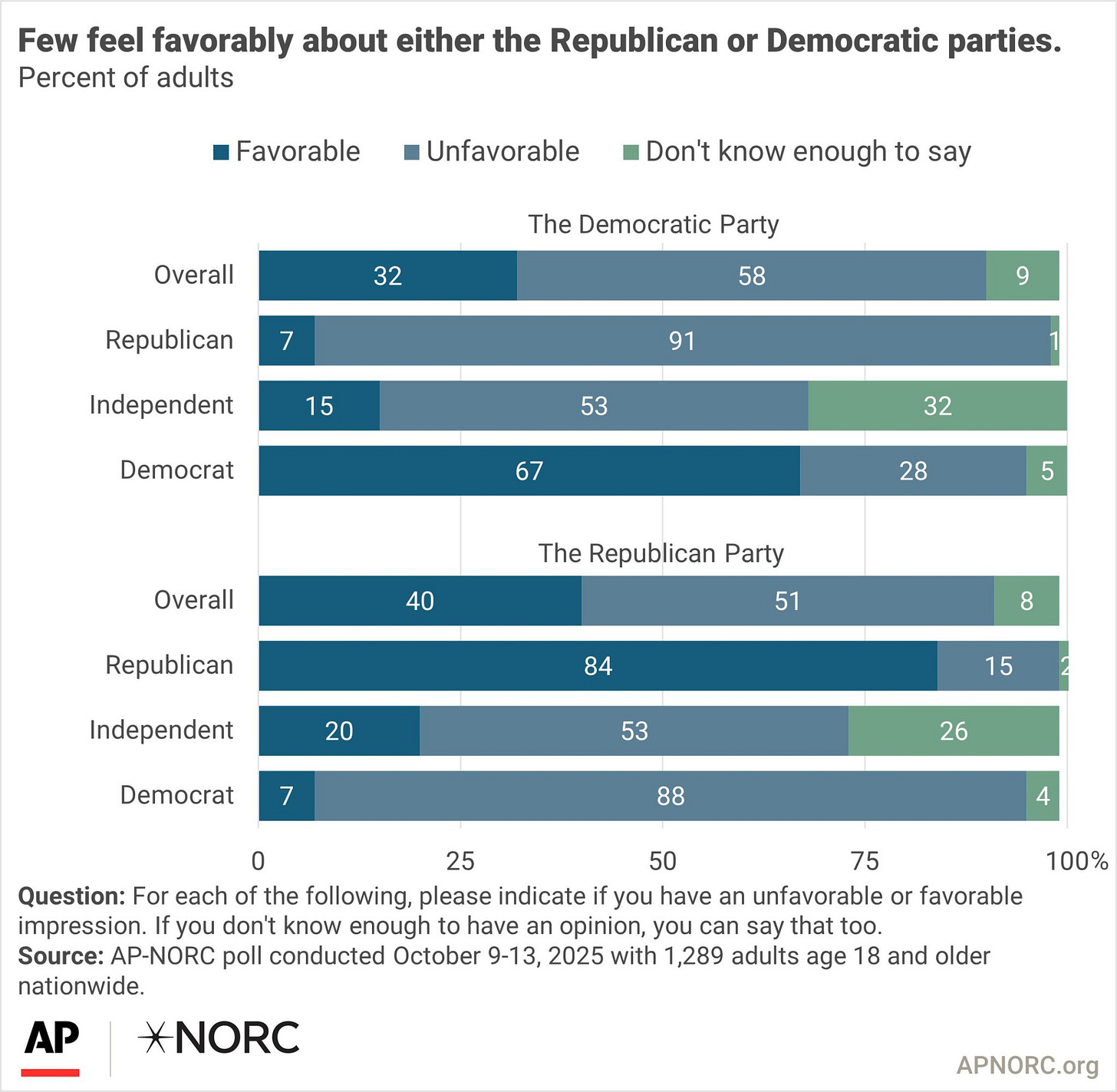
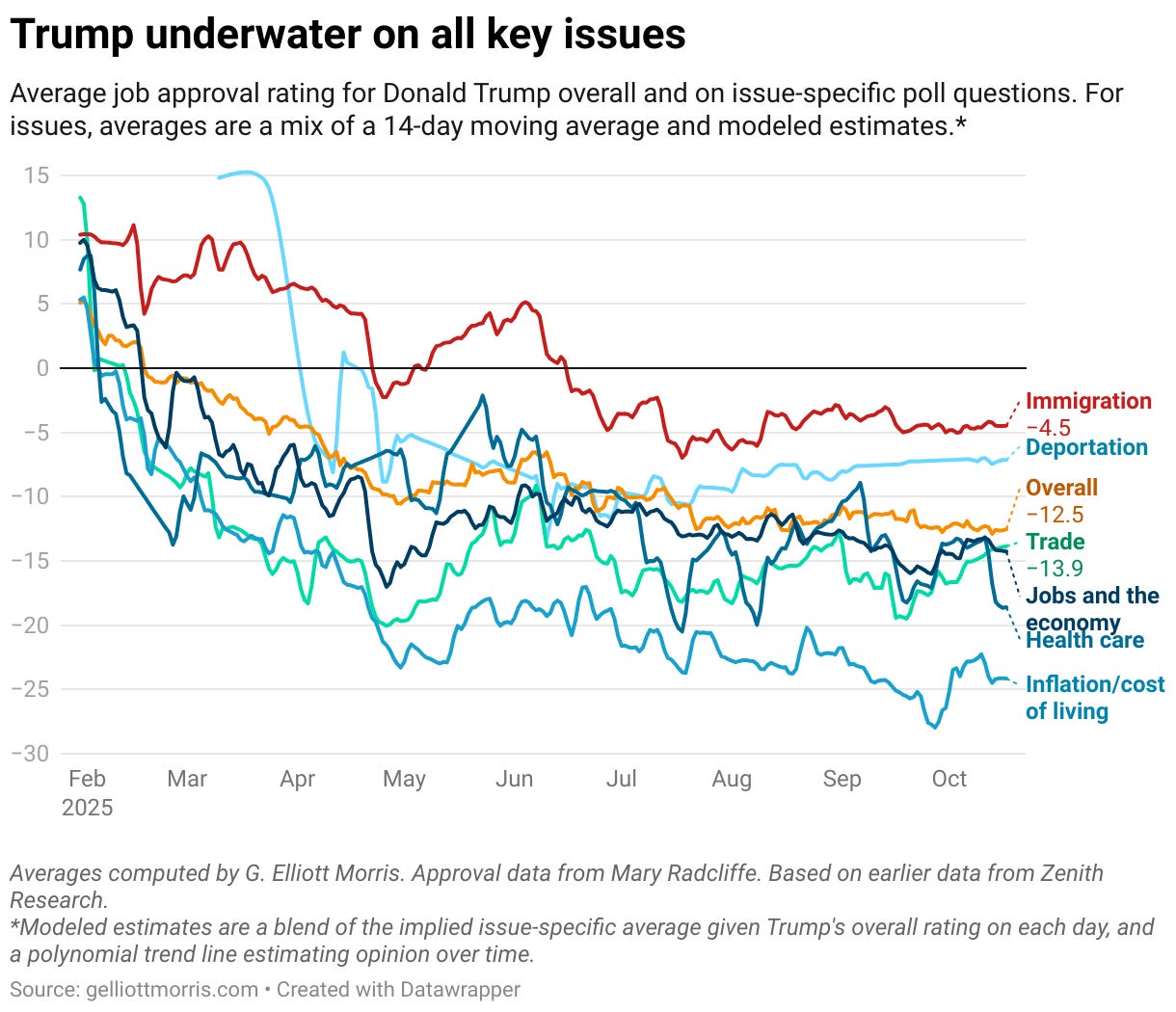
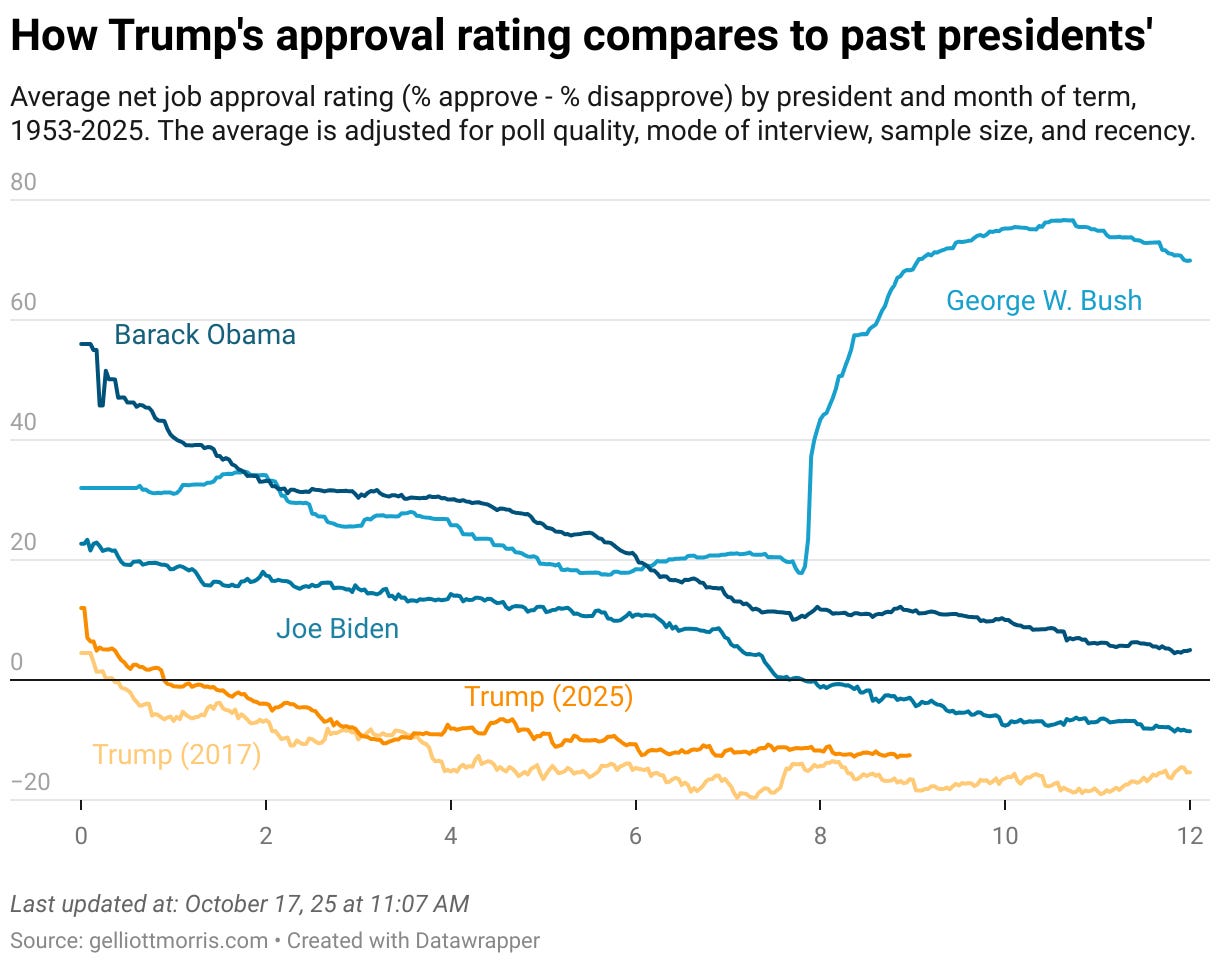
I was out yesterday at No Kings. One of the interesting things was that I saw several locally prominent Republican voices. One holding a sign saying "My father didn't die on Omaha Beach for this".
In the poll showing preferences for reducing the Federal debt, the takeaway was the percentage of Americans who want to increase taxes on the wealthy. But before reading the comment, my immediate takeaway was looking at all the issues the huge split between what Democrats and Republicans think. To me, it seems increasingly irrelevant to refer to what "Americans believe".